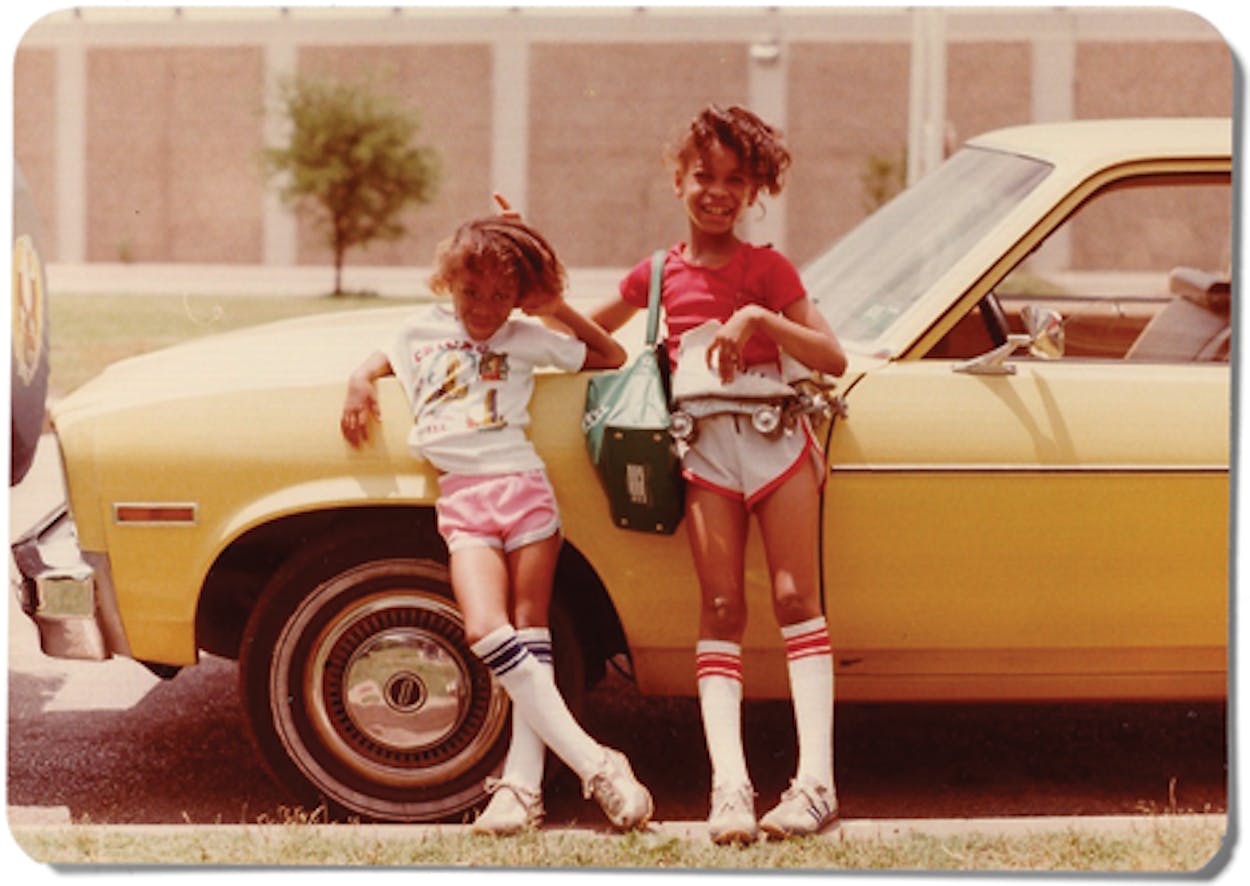I’m from South Dallas. It’s such a big part of my life; my grandmother still lives in the house I grew up in. Her house is right in front of Interstate 45. My great-grandmother Odessa Gipson—it was her house as well. When she was a young woman, they started to build the highway. They were going to build it right there and not have an entrance or an exit for us, and she got a petition together to have an exit put in, which they did.
My first memory is of sitting on the floor in the dining room on an afternoon. I remember the shadows coming in through the window, the smell of the pine-wood table, the curtains. Even now that’s my favorite time of day. The air conditioner was in the window. We had to put water in it from the outside.
Right next door was Mr. Johnson—he used to give kids bananas. Next door to him was Mary Brooks—she had every kind of snack you could imagine, from Popsicles to Froot Loops to chicken potpies. The neighborhood was very different then. There were more children playing outside, people watering yards. I remember in summer the sidewalk would be so hot, I’d lie on my stomach in a puddle from the water sprinklers. The water was warm. There were a lot more people just walking around the neighborhood. You locked your door, but if you forgot, it wasn’t something you worried about. South Dallas was a functioning neighborhood.
I was very sheltered growing up. My grandmother was the principal clerk at the elementary school, and my mother was a reading teacher there. I was raised by strong women. And there was a whole lot of laughter in the house. My mother, grandmother, and I, we have a strong sense of humor. Richard Pryor was played way too early in my life. I remember in fifth grade learning a whole Pryor album. I’m so grateful for my family. I felt like the world was a private joke between me and my family.
The neighborhood changed gradually. It’s like watching a child grow: One day you turn around and there he is. At first it looked like things were changing for the better; the streets would be repaved, new people were moving in. But in the late eighties crack cocaine came and everything went to hell. No more watering your yard outside. Not as many children playing in the yards. All of a sudden it was a serious thing to lock your door. It became something you had to do or you’d get robbed. Fear began to set in to my life. And before that I didn’t know anything about fear. My sister and brother and I had to learn to lead by example—and learn to fight. I learned balance in my life, learned to pick my battles. To appreciate little things: a yard, the sound of birds. It’s limiting when you don’t have leaves on trees.
I love my community, I love this hood. I didn’t want to live in the hood because of some of the things I saw. I saw a lot of things that were not healthy. Once drugs came in, it was not healthy anymore. It was not healthy to be afraid. It was not healthy to see trees and grass go to brown and stay that way.
But we have a ritual in my family: Every birthday, we celebrate at my grandmother’s house, every single person—my mom, daddy, sister, brothers, cousins, all our children. No matter where we are, we stop and gather at my grandma’s house in South Dallas.









